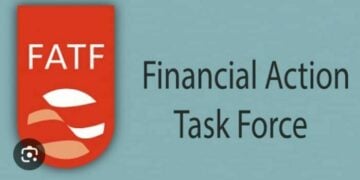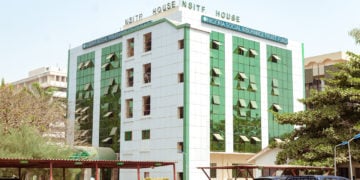BAT Nigeria has advocated critical export policy reforms to unlock Nigeria’s manufacturing competitiveness.
The managing director, BAT West and Central Africa, Yarub Al-Bahrani, stated this at the 2025 edition of the BusinessDay CEO Forum held in Lagos. Themed ‘Nigeria: From Reform to Recovery,’ the forum brought together the nation’s foremost business leaders, senior policymakers, global experts, and entrepreneurs to dissect the practical impacts of Nigeria’s ongoing policy recalibration.
Participating in the panel discussion on ‘Driving Recovery Across Key Sectors’, Al-Bahrani emphasised that Nigeria’s bold reforms, including foreign exchange unification, subsidy removal, and evolving industrial policies have created both challenges and opportunities for manufacturers.
“At BAT Nigeria, our approach is clear: adapt fast, invest deeper, and build sustainably. True recovery is not just about surviving volatility, but driving meaningful growth anchored in innovation, sustainability, and local empowerment,” he said.
While commending policy reforms that have improved transparency and market efficiency, Al-Bahrani called for urgent reforms to the Export Expansion Grant (EEG) scheme to stimulate Nigeria’s export competitiveness and liquidity.
“We urge the government to overhaul the EEG scheme by replacing promissory notes, which are proving administratively cumbersome, with export credit certificates backed by annual budget allocations. This would provide practical support to exporters,” he noted.
He revealed that despite rising operational costs due to exchange rate unification, BAT Nigeria remains a net contributor to Nigeria’s economy with over $300 million in cumulative export sales between 2022 and 2024.
The company’s Ibadan factory, he said, serves as a regional manufacturing hub, exporting to 13 countries including the United States while supporting Nigeria’s external reserves.
Highlighting BAT Nigeria’s sustainability leadership, Al-Bahrani said “our business is now focused on accelerating Tobacco Harm Reduction (THR) globally, with the ambition to generate at least 50 per cent of our revenue from smokeless products by 2035 products that have been scientifically shown to present reduced risks compared to traditional smoking.
“We remain on track to achieve 100 per cent renewable electricity across our Nigerian operations by 2030, driven by a 1.4MW solar system and a fully Compressed Natural Gas powered energy source at the factory,” he stressed.
He added that BAT Nigeria is a strong supporter of the private sector sustainability movement in Nigeria, partnering with public and private actors to drive initiatives such as Lagos State’s N14.8 billion Green Bond, waste-to-wealth programmes, and the clean cookstove initiative.
Addressing the impact of tax and excise policies on industrial resilience, Al-Bahrani called for a consultative, data-driven approach to excise planning.
“Sharp or unpredictable hikes can undermine formal businesses, dampen investment appetite, and fuel illicit trade. Policies should be rooted in Nigeria’s unique economic realities, not imported models from markets facing different macroeconomic conditions,” he advised.





